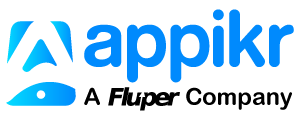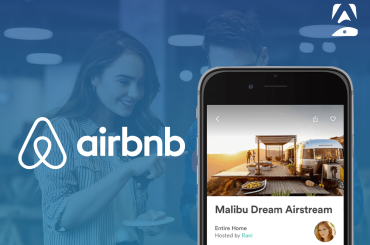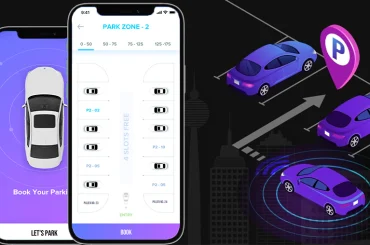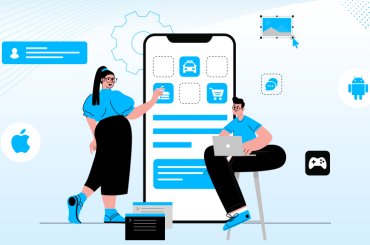Introduction
The healthcare industry is undergoing a digital transformation, and one of the most groundbreaking technologies driving this change is Blockchain. Blockchain technology, known primarily for its association with cryptocurrencies like Bitcoin, offers a wide range of applications beyond finance. In this comprehensive guide, we will explore the impact of Blockchain on healthcare, its benefits, challenges, and the role of android app development in this revolution.
Understanding Blockchain
Before delving into healthcare applications, it’s essential to understand what Blockchain is. This technology offers several key features:
- Decentralization: Unlike traditional databases, Blockchain operates on a network of nodes, eliminating the need for a central authority.
- Security: Blockchain uses cryptography to secure data, making it extremely resistant to tampering and fraud.
- Transparency: All participants in the network have access to the same data, ensuring transparency and trust.
Blockchain in Healthcare
Data Security and Privacy
Blockchain addresses these concerns by ensuring the secure storage and sharing of patient information. Patients can have more control over their data, granting access to healthcare providers as needed while maintaining their privacy.
Blockchain’s cryptographic techniques make it virtually impossible for unauthorized parties to access or manipulate patient data. Patients can have confidence that their sensitive medical information remains confidential and secure.
Interoperability
Healthcare data is often siloed in various departments, making it challenging to share and integrate information. Blockchain facilitates interoperability by providing a standardized platform for data exchange among different stakeholders in the healthcare ecosystem.
Blockchain’s interoperability helps in creating a unified system where healthcare providers, insurance companies, and other stakeholders can securely access and share data, leading to more effective and coordinated patient care.
Benefits of Blockchain in Healthcare
Blockchain technology offers a wide array of benefits in the healthcare sector:
- Data Integrity: Blockchain ensures that medical records and data remain accurate and unaltered, reducing the risk of medical errors. Any changes to the data are transparently recorded, providing a complete audit trail.
- Improved Efficiency: Administrative processes, such as claims processing and billing, can be streamlined, reducing costs and administrative burden. Smart contracts, a feature of Blockchain, automate various aspects of these processes.
- Patient Empowerment: Patients can have control over their health data and selectively grant access to healthcare providers, researchers, or insurers. They can also easily access their electronic health records, which are securely stored on the Blockchain.
- Drug Traceability: Blockchain enables end-to-end traceability of pharmaceuticals, reducing the risk of counterfeit drugs and making the supply chain more secure. This is particularly crucial for ensuring patient safety.
- Research and Clinical Trials: Blockchain can streamline the management of patient consent for clinical trials, improve the transparency of research data, and enhance the trustworthiness of medical research.
Challenges and Concerns
While blockchain offers significant advantages, it also presents challenges in terms of scalability, regulatory compliance, and implementation costs. The transition to Blockchain in healthcare must be carefully planned and executed to overcome these hurdles.
- Scalability: Blockchain networks, particularly public ones like Ethereum, can face scalability issues. As healthcare involves a vast amount of data, addressing scalability is crucial to ensure the technology’s suitability for the industry.
- Regulatory Compliance: The healthcare sector is heavily regulated to protect patient privacy and safety. Integrating Blockchain requires navigating complex regulatory frameworks to ensure compliance.
- Integration with Legacy Systems: Many healthcare organizations use legacy systems that are not designed to work with Blockchain technology. Integrating these systems can be complex and expensive.
- Implementation Costs: Implementing Blockchain in healthcare can be costly. However, proponents argue that the long-term benefits, such as cost savings and improved patient outcomes, outweigh the initial investment.
Blockchain-Based Healthcare Applications
Blockchain is being used in various healthcare applications to address these challenges and take advantage of the benefits:
Electronic Health Records (EHR)
Electronic Health Records (EHR) are a fundamental component of healthcare. They store patients’ medical histories, treatment plans, and test results. Blockchain can revolutionize EHR by ensuring secure and interoperable records, accessible to authorized personnel when needed.
Blockchain-based EHR systems offer the following advantages:
- Interoperability: Patients can share their health records seamlessly between different healthcare providers, regardless of the EHR system in use.
- Security: EHRs are encrypted and distributed across the Blockchain, making them highly secure and resistant to tampering.
- Patient Ownership: Patients have greater ownership and control over their health data. They can decide who accesses their records and for what purposes.
- Access Control: Healthcare providers, researchers, and insurers can access EHR data only with the patient’s explicit consent.
Drug Traceability
Blockchain’s immutability and transparency are key to ensuring the authenticity and safety of pharmaceuticals. By recording the entire journey of a drug from the manufacturer to the patient, Blockchain technology can effectively combat the distribution of counterfeit medications.
Key benefits of drug traceability on the Blockchain include:
- Reduced Counterfeits: Blockchain ensures that drugs are genuine and have not been tampered with, improving patient safety.
- Faster Recalls: In the event of a product recall, Blockchain enables rapid and accurate identification of affected products, reducing the potential harm to patients.
- Transparent Supply Chain: Every participant in the supply chain, from manufacturers to distributors, can access and verify data, enhancing transparency.
Telemedicine and Remote Monitoring
The integration of Blockchain with telemedicine and remote monitoring allows for secure data exchange between patients and healthcare providers, even across different platforms. Patients can have consultations with doctors from the comfort of their homes, and their data is securely recorded on the Blockchain.
Blockchain’s role in telemedicine and remote monitoring includes:
- Data Security: Patient data transmitted during telemedicine appointments is encrypted and stored securely, protecting patient privacy.
- Streamlined Payments: Smart contracts can automate billing and payments for telemedicine services, reducing administrative overhead.
- Real-time Monitoring: IoT devices used in remote monitoring can securely transmit data to healthcare providers through the Blockchain, ensuring the accuracy and integrity of the information.
Blockchain App Development in Healthcare
Blockchain app development plays a crucial role in bringing this technology to the healthcare sector. It involves creating applications that leverage Blockchain’s capabilities to address specific healthcare needs. Two key aspects of app development are:
Android App Development
Blockchain-based Android apps are essential for delivering healthcare services to a wide range of users. Patients can access their EHR, manage appointments, and securely communicate with healthcare providers through Android devices.
Android app development in healthcare offers the following advantages:
- Accessibility: Android devices are widely used, ensuring broad accessibility for patients and healthcare providers. It is also used for android tablet development.
- User-Friendly Interface: Developers can create intuitive and user-friendly interfaces for Android healthcare apps.
- Security: Android apps can utilize Blockchain’s robust security features to protect patient data.
iOS Application Development Services
iOS users also benefit from Blockchain applications. Secure and user-friendly healthcare apps can be developed for iPhones and iPads, catering to a significant portion of the population.
Key advantages of iOS application development services in healthcare include:
- User Base: iOS has a substantial user base, particularly in developed countries, making it a lucrative platform for healthcare app development.
- Security: iOS is known for its stringent security measures, complementing Blockchain’s security features.
- Intuitive Design: iOS apps are typically lauded for their intuitive and visually appealing design, enhancing user experience.
IoT Application Development in Healthcare
IoT (Internet of Things) devices are becoming increasingly integrated into healthcare systems. These devices, such as wearable fitness trackers and remote monitoring tools, collect valuable healthcare data. Blockchain can enhance IoT applications by ensuring the security and integrity of the data collected from various medical devices.
IoT application development company in healthcare offers the following advantages:
- Data Security: Data from IoT devices is securely transmitted and stored on the Blockchain, reducing the risk of data breaches.
- Interoperability: IoT devices from different manufacturers can seamlessly communicate and share data, improving the quality of care.
- Real-time Data: Healthcare providers can access real-time data from patients, allowing for proactive and timely interventions.
Conclusion
Blockchain’s impact on healthcare is profound, offering improved data security, interoperability, and patient empowerment. As the healthcare industry continues to embrace digital transformation, the development of Blockchain-based applications for Android, iOS, and IoT will be key in delivering secure and efficient healthcare services. You can connect with companies like Appikr to make healthcare more accessible, secure, and patient-centered.
FAQs
- How does blockchain ensure data security in healthcare?
Blockchain employs advanced cryptographic techniques to secure data. Patient information is stored in an encrypted and decentralized manner, making it extremely resistant to unauthorized access or tampering. - What are the benefits of using blockchain in EHR systems?
Blockchain enhances EHR systems by ensuring data integrity, interoperability, and patient privacy. Patients have control over their records, and healthcare providers can securely share information, improving the quality of care. - What is the role of IoT in blockchain-based healthcare applications?
IoT devices collect valuable healthcare data from patients, enabling real-time monitoring and data transmission to healthcare providers. Blockchain ensures the security and integrity of this data, making it a key component of healthcare applications. - How can I get started with blockchain app development for healthcare?
Getting started with blockchain app development in healthcare requires acquiring the necessary technical skills, understanding healthcare industry requirements, and exploring blockchain platforms and tools. You can begin by learning about blockchain technology, programming languages, and development frameworks commonly used in healthcare. - Is blockchain the future of healthcare technology?
Blockchain is poised to play a significant role in the future of healthcare technology. Its ability to enhance data security, interoperability, and patient empowerment makes it a promising solution for the industry’s evolving needs. While there are challenges to overcome, the potential benefits are substantial and could revolutionize the healthcare landscape.





